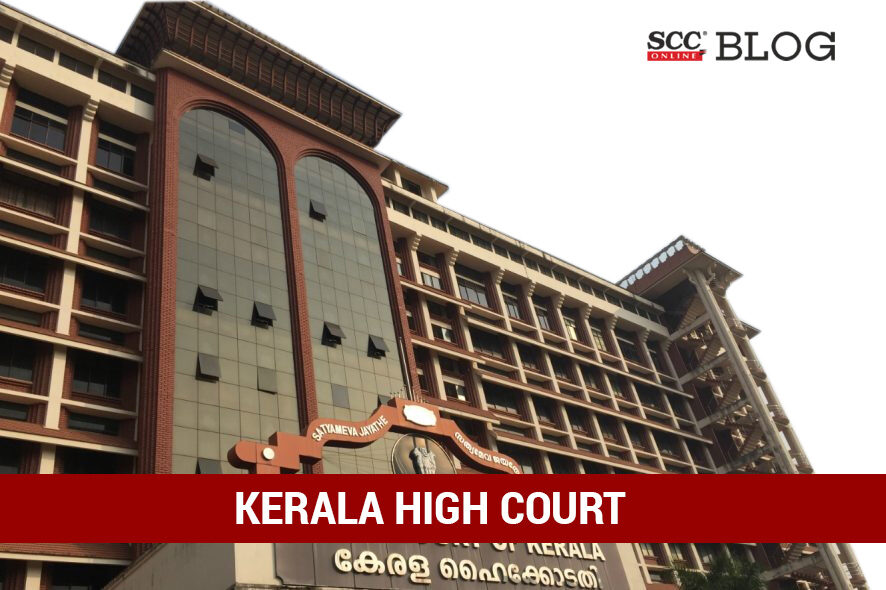Kerala High Court: In a matrimonial appeal challenging the judgment and decree passed by Family Court on 15-10-2022 wherein, in the words used by the Court, “An octogenarian Christian failed against his children for arrears of maintenance on the ground that no law prescribes a Christian would be entitled to past maintenance”, the Division Bench of A. Muhamed Mustaque and Sophy Thomas, JJ. explained in detail the essence of maintenance provisions beyond parties’ faith, set aside the impugned order and remitted the matter back to Family Court for fresh consideration.
As expressed, the Court initially assumed that the Family Court was right in the absence of any statutory provision in Christian law prescribing maintenance to a father but probed many laws and principles to understand the claim for maintenance in the instant case. The Court raised a serious question – “Is it a requirement that to claim maintenance there should be a positive law?” The Court was of the view that positive law was not a pre-requisite to claim past maintenance.
In the instant case, the parties were Christian by faith and the dilemma was that there was no statutory provision prescribing duty upon children to pay maintenance to father in his old age. The Court noted that even under Indian Christian Marriage Act, 1872, there was silence around grant of maintenance for wife and children. The Court referred to Karnataka High Court’s view in K. Kumar v. Leena, 2009 SCC OnLine Kar 574 to strive to redress grievances by adopting the principles of equity, natural justice and good conscience.
Finger pointing at Maintenance and Welfare Parents and Senior Citizens Act, 2007, the Court stated that “maintenance can only be claimed prospectively after the date of application for maintenance” and also cited similar provision under Section 125 of Criminal Procedure Code, 1973.
The Court observed that “the law is nothing but principles that are implicit in the relationships formed privately through practices, traditions and culture. Some legal principles followed in society in past may have gotten statutory recognition through legislation. In a country where the social order is defined by the practice of the community or that of a denomination adhering to a long-standing religious norms and precepts, the court will have to recognize those norms and precepts creating such relationship in that social order.”
Discussion over Importance of Honoring Parents in Holy Bible
With this thought, the Court cited the Holy Bible that “Honor your father and mother” (this is the first commandment with a promise), “that it may go well with you and that you may live long in the land.[ Ephesians 6:2-3] Listen to your father who begot you, And do not despise your mother when she is old” [Proverbs 23:22] But if anyone does not provide for his relatives, and especially for members of his household, he has denied the faith and is worse than an unbeliever”. [Timothy 5:8]”
The Court referred to Article 25 of the Universal Declaration of Human Rights regarding the right to a standard of living. Reference was made to Article 41 of Constitution of India while expressing that “Though one may think that it is the duty of the State to provide measures to secure the needs of senior citizens during their old age, we cannot ignore the principles in a social order creating an obligation on the children to maintain their parents during old age.” The Court referred to the views of Ronald Dworkin in “Taking Rights Seriously about the judges” role in making decisions and using discretion and his book “Law’s Empire”.
The Court explained that it cannot ignore social rules that bind social order in the light of faith professed by parties and generally based on international instruments and professed promise declared in the Constitution.
Court’s Views on Senior Citizen’s Right to Past Maintenance
With respect to an elder’s right to maintenance, the Court beautifully depicted that “If the law entitles a senior citizen in old age the claim for maintenance prospectively, it does not mean the law negates the claim for past maintenance. A man with self-respect might have resisted himself in approaching the court at first instance on a belief that his children would respect his needs. His patience and respect for the children cannot be encashed to deny his claim for past maintenance. The social order that gives rise to the legal order in this country carefully narrates the traditional practice. Even without any positive aid of law the court could have recognized the right of the elder irrespective of the religion to claim the past maintenance and future maintenance. Merely for the reason that the legislation had only provided measures for the award of prospective maintenance, that cannot result in denial of the claim for past maintenance.”
Therefore, the Court set aside the impugned order and remanded the matter back to Family Court for fresh consideration on merits. It further directed the Family Court to dispose of the matter within 2 months.
[Chandi Samuval v. Saimon Samuval, Matrimonial Appeal No. 782 of 2022, decided on 24-08-2023]
*Judgment by: Justice A. Muhamed Mustaque
Advocates who appeared in this case :
For Appellant: Advocate Alex M. Scaria, Advocate Beas K. Ponnappan, Advocate A.J. Riyas, Advocate Saritha Thomas, Advocate Alen J. Cheruvil, Advocate Sahl Abdul Kader, Advocate Sanjith Kumar R.
For Respondents: Advocate P. Venugopal









The Samuval case is from KERALA HC and not from BOM HC